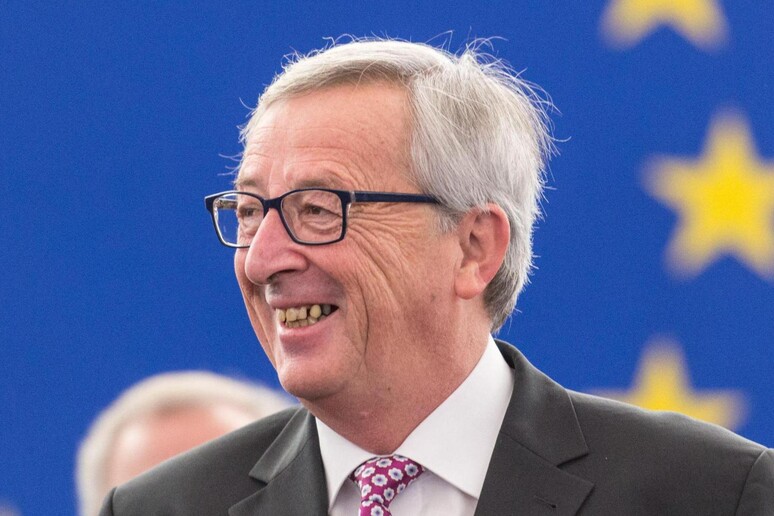Premier Matteo Renzi used a meeting with Christine Lagarde, head of the International Monetary Fund (IMF), to reiterate his call for growth actions on Wednesday even as the European Commission President Jean-Claude Juncker warned Rome that it could face unpleasant consequences if the EU's demands are not met.
Renzi's office described Lagarde's visit as a "courtesy call", coming one day after she used a speech opening the academic year at Milan's Bocconi University to praise Renzi's Jobs Act labour market reforms, while warning continued youth unemployment could create a social disaster.
Lagarde, who later visited Pope Francis at the Vatican, and Renzi met for an hour and discussed the urgent need for investment in Europe, where policy makers are struggling with low growth and low inflation.
For months, Renzi has argued for flexibility in the application of EU budget rules, to create room for stimulative spending even - arguments that have been rejected by fiscal hawks, in Germany in particular.
After meeting Lagarde, Renzi said the head of the Washington-based IMF agreed on the need for growth-sparking investments. "If even the IMF, which is not a section of the Communist Party...asks Europe to invest in growth," then EU leaders should listen, Renzi said in an apparent response to calls for rigour from German Chancellor Angela Merkel. But even Jean-Claude Juncker, the head of the European Commission who recently presented a 300-billion-euro investment plan, warned against running up debt, saying that ultimately hurts growth and jobs. Juncker add that if Italy and France do not proceed with the structural reforms that they have announced, they could face EU sanctions that "will not be pleasant".
In comments to a German newspaper, Juncker added he had "confidence" that the countries will make the necessary changes before March when their budgets will be again scrutinized by the EC.
Italy's 2015 budget has received tentative approvals from the European Commission, but the final decision has been postponed until March 2015 to see how effective promised reforms will actually be.
The Commission recently warned Renzi's executive that its 2015 budget bill, which includes 18 billion euros in tax cuts in a bid to boost the economy, was at risk of breaching the Stability and Growth Pact's rules on bringing down a national debt of more than two trillion euros. Renzi amended his original budget plan in October in the face of Commission objections, offering some 4.5 billion euros of additional deficit cuts worth around 0.3% of GDP.
The Renzi government has also "cancelled" the labour component of the IRAP regional business tax in the 2015 budget, lightening the burden on firms by as much 30%, Economy Minister Pier Carlo Padoan announced Wednesday.
Juncker emphasized the importance of fully funding such moves rather than run up debt.
"There is no work and no growth if debt climbs," Juncker said later in a video message to fiscal seminar organized by ex-premier Mario Monti.
Juncker added that his investment plan was created "without debt" to create jobs, especially for youth, "but you do not spend money you do not have," he added.
Renzi has praised that plan as supportive for not only struggling economies as in Italy, but for all of Europe.
In fact, significant economic problems such as high youth unemployment has reached crisis proportions for all of Europe, not just Italy where the jobless rate among 15- to 25-year-olds was 43.3% in October.
"This is not just a cross for the young to bear," Lagarde said in Milan on Tuesday. "Sooner or later this is a cross that society will need to bear," she added, warning of the future fallout from the destruction of work opportunities and economic activities.
IMF research has shown that Italy's outdated labour laws, which Renzi's Jobs Act is changing, has made a widespread economic crisis particularly acute for Italy.
"Low growth and low inflation are a toxic mix. They create a vicious circle," Lagarde said.
ALL RIGHTS RESERVED © Copyright ANSA











